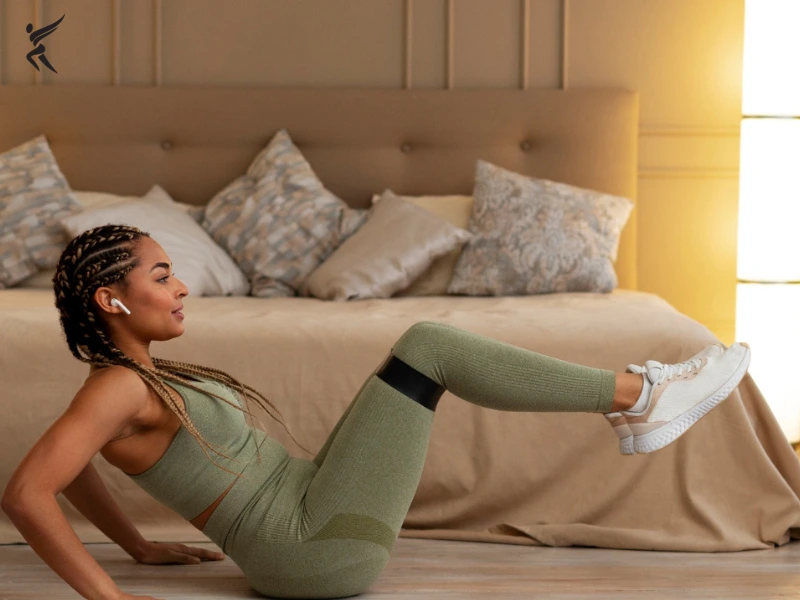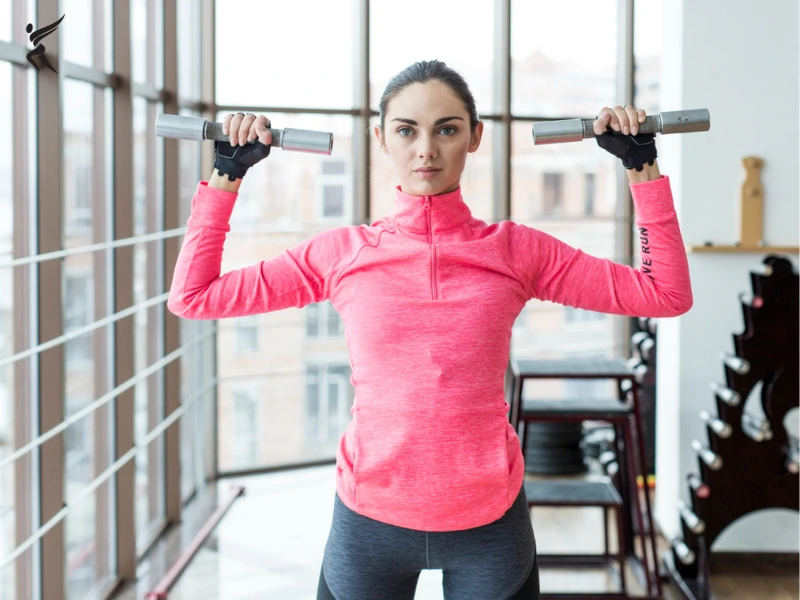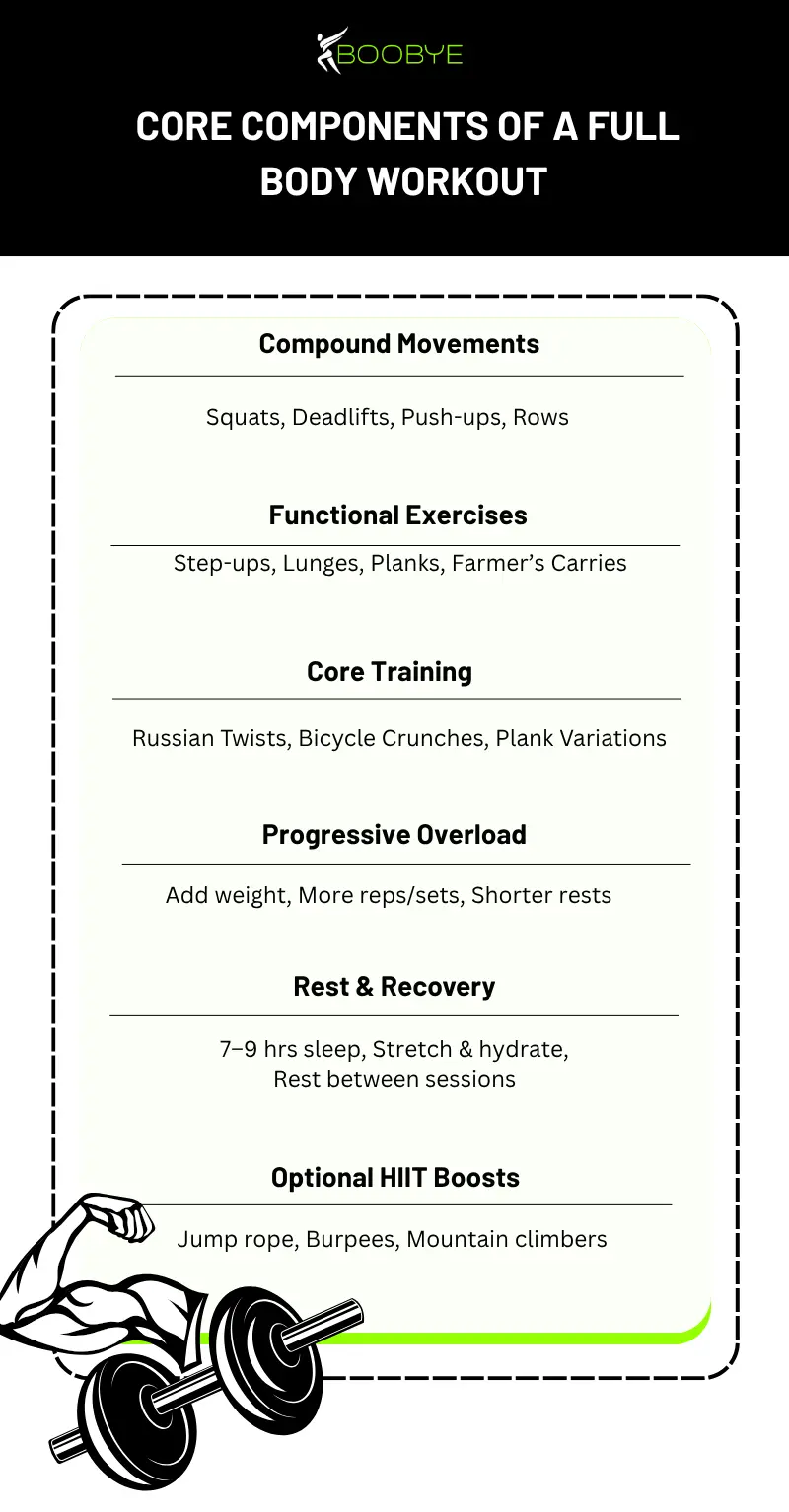Are you a confident woman looking to build strength, tone your muscles, and boost your confidence? A full body workout is the perfect place to start.
You must know that, unlike isolated training splits that target just one muscle group, full body workouts engage multiple muscle groups in a single session. This style of training builds strength and, in turn, promotes fat loss, improves coordination, and boosts confidence.
This guide walks you through everything you need to know about full body workout routines designed specifically for women. From the benefits to the best exercises and complete routines, you’ll leave here ready to own your next gym session.
Related: Create the Perfect Workout Routine for Women & Beginners
Why Choose a Full Body Workout?
For many women, especially those having tight schedules or are new to lifting, full body workout routines offer them a practical and sustainable solution. They combine strength, cardio, and functional movements, etc., to deliver holistic fitness benefits.
Visit: Top Pre-Workouts for Muscle Growth and Skin-Splitting Pumps
Benefits of a Full Body Workout for Women
- Efficiency: A full body workout routine allows you to hit all the major muscle groups in 30 to 60 minutes.
- Faster Progress: Training multiple muscle groups more frequently leads to faster strength gains and better muscle tone.
- Higher Calorie Burn: A session involving compound movements raises your heart rate, helping you burn more calories both during and after the workout.
- Balanced Physique: Instead of overtraining one area (like legs or arms), complete body exercise ensures symmetry and functional strength.
- Time Flexibility: With just 2–3 sessions a week, you can still see impressive results.

Full Body Workouts vs. Split Routines
The split routines (e.g., leg day, chest day) are effective, and at the same time, they demand more frequent training. On the other hand, Full body exercises are perfect for women who train 2–4 times per week and want to make the most of each session.
Discover: Top Female Fitness Models to Follow in 2025
Key Benefits of Full Body Training Workouts
Here’s what you’ll gain from consistent full body training workouts:
Build Lean Muscle
Strength training helps increase lean muscle mass. This boosts metabolism and helps with body recomposition, where you lose fat and gain muscle at the same time.
According to the Journal of Strength and Conditioning Research, women who engage in resistance training three times a week experience significant improvements in muscle strength and composition (Westcott, 2012).

Burn More Calories in Less Time
A good full body weight training workout engages more muscles in each move. This ultimately increases your heart rate and calorie burn, even after the workout ends (the afterburn effect!).
Improve Everyday Strength
If you want to lift groceries, chase your kids, or hike without fatigue, the full body routines improve real-world strength and endurance.
Anatomy of a Good Full Body Workout
A complete body workout for women isn’t just about lifting weights or burning calories. It’s about building a strong, balanced body that performs well in everyday life. Afull body workout helps your entire system function better.
This type of training targets all the major muscle groups, i.e, legs, glutes, back, chest, arms, shoulders, and core. A good full body weight training workout also includes a mix of strength moves, functional training, and, optionally, short cardio bursts for added fat burn. Here’s a breakdown of what makes a solid, effective full body workout routine for women:
Compound Movements: Big Results, Less Time
Compound movements are exercises that work multiple muscle groups at once. These are the foundation of any efficient full body workout because they give you more bang for your buck. You’re building strength, burning more calories, and training functionally, all at the same time.
Some essential compound exercises include:
- Squats – Activate glutes, quads, hamstrings, and core.
- Deadlifts – Great for posterior chain strength (glutes, hamstrings, back).
- Push-ups – Target chest, shoulders, triceps, and core.
- Rows – Strengthen the back, biceps, and rear shoulders.
These exercises mimic natural movement patterns and improve your strength across the board. They’re a must in any full body workout for women.

Functional Exercises: Train for Life
Functional training means exercises that help you move better in real life. These exercises improve coordination, balance, and mobility. They don’t just make you stronger, they make you more capable in your day-to-day activities.
Explore: Top 50 Famous Female Celebrities Ranked by Beauty, Influence and Fame
Here are some top picks:
- Step-ups – Train single-leg strength and stability.
- Lunges – Boost lower body strength and balance.
- Planks – Build a rock-solid core and shoulder stability.
- Farmer’s Carries – Strengthen your grip, shoulders, and core, all while mimicking real-life carrying motions.
Including these movements in your full body workout routines makes your training more practical, dynamic, and engaging.
Core Training: The Power Center
A strong core is the anchor for your entire body. It stabilizes your spine, supports posture, and prevents injuries, especially during lifting and high-movement workouts.
Effective core-focused movements to include:
- Russian Twists – Target obliques and improve rotational strength.
- Bicycle Crunches – Great for targeting the upper and lower abs.
- Plank Variations – Side planks, forearm planks, and shoulder-taps keep things interesting and effective.
Your core plays a crucial role in every full body training workout, so never skip it. Even exercises like squats and deadlifts indirectly train your core, which is why they’re so powerful.

Progressive Overload: Challenge Brings Change
If you want real progress from your full body workout routine, you need to apply the principle of progressive overload. That means gradually increasing the demand on your muscles. Your body adapts to challenges, so to keep getting stronger and leaner, you have to keep pushing just a bit more.
Ways to apply progressive overload:
- Add more weight to your lifts
- Increase the number of reps or sets
- Shorten rest periods
- Try more advanced exercise variations
Tracking your progress in a journal or app can be a game-changer. It’s motivating to see how far you’ve come, and it helps you stay consistent.
Rest and Recovery: Grow While You Sleep
Muscles don’t grow during your workout, they grow when you rest. Recovery is just as important as training. Without it, you risk injury, fatigue, and plateaus.
Tips for better recovery:
- Take at least one rest day between women full body training sessions
- Get 7–9 hours of sleep per night
- Hydrate and eat enough protein to support muscle repair
- Use light stretching or foam rolling to improve circulation and reduce soreness
Listen to your body. If you feel excessively sore, tired, or irritable, it might be a sign to pull back and rest more.
Optional: Cardio or HIIT Add-Ons
While not mandatory, short bursts of cardio or High-Intensity Interval Training (HIIT) can be added to your complete body workout for women to elevate heart rate, burn more calories, and improve cardiovascular health.
Examples:
- Jumping jacks or jump rope between sets
- Sprint intervals at the end of your workout
- 10-minute HIIT finisher (e.g., burpees, mountain climbers, high knees)
Keep it short and intense if you’re adding it post-strength. You want to enhance, not drain, your main workout performance.
Sample Full Body Workout Routine (Beginner to Intermediate)

| Day | Focus | Workout |
| Monday | Full Body Strength (Day 1) | Warm-Up (5 mins): Light cardio (jump rope or brisk walk) Workout:– Squats – 3×12 – Push-ups (knees or full) – 3×10 – Dumbbell Rows – 3×12/arm – Glute Bridges – 3×15 – Plank – 3×30 sec |
| Tuesday | Active Recovery / Core | Light Activity: Walking, yoga, or stretching Core Focus:– Russian Twists – 3×20 – Bicycle Crunches – 3×15 – Side Plank – 2×30 sec/side |
| Wednesday | Full Body Strength (Day 2) | Warm-Up (5 mins): March in place + arm circles Workout:– Deadlifts (dumbbell or barbell) – 3×10 – Step-Ups – 3×12/leg – Overhead Press – 3×10 – Dumbbell Lunges – 3×12/leg – Bird Dog – 3×10/side |
| Thursday | Optional Cardio or HIIT | Choose One: – Brisk walk/jog (30 mins) – OR 15-min HIIT (e.g., jumping jacks, squat jumps, high knees, burpees) Stretch for 5 mins |
| Friday | Full Body Strength (Day 3) | Warm-Up (5 mins): Dynamic movements (leg swings, shoulder rolls) Workout: – Goblet Squats – 3×12 – Incline Push-ups – 3×10 – Dumbbell Romanian Deadlifts – 3×10 – Farmer’s Carries – 3×30 sec – Plank with Shoulder Tap – 3×20 |
| Saturday | Mobility + Core | Foam Rolling + Stretching (15–20 mins) Core Focus: – Plank – 3×45 sec – Dead Bug – 3×10/side – Seated Leg Lifts – 3×15 |
| Sunday | Rest / Total Recovery | Full rest day. Light walk or gentle yoga is optional. Focus on hydration, nutrition, and sleep. |
Pro Tips for Full Body Workout Routines
- Train 2–4 days/week: Avoid overtraining. Give muscles time to recover.
- Increase weights slowly: Once the last few reps feel too easy, go heavier.
- Track progress: Keep a journal or app to monitor weights, reps, and energy levels.
- Focus on form: Quality over Quantity. Bad form leads to injuries.
- Stay consistent: Results come with time, not overnight.
Can You Do Full Body Workouts Every Day?
Technically, yes; but should you? Probably not.
Your muscles need recovery time to grow stronger. Aim for 2–3 sessions a week, especially if lifting heavy. You can alternate with lighter activities like yoga, walking, or stretching.
According to The American College of Sports Medicine, rest and recovery are as important as training itself. Overtraining can lead to fatigue, hormonal issues, and plateaus.
Full Body Workout with Weights vs. Bodyweight
Both are effective! Here’s a quick breakdown:
| Bodyweight Workouts | Weight Training Workouts |
| Easier to do anywhere | Require a gym or equipment |
| Great for beginners | Better for building strength |
| Less risk of injury | More variety and progression |
| Can get repetitive | Keeps workouts interesting |
Ultimately…
A consistent full body workout plan can be life-changing for women. It builds real strength, shapes your body, and boosts confidence. Whether your goal is fat loss, muscle gain, or just feeling stronger in daily life, this training style fits the bill.
Start where you are. Use what you have. And know that every squat, push-up, and lift brings you closer to a stronger, healthier version of yourself.

